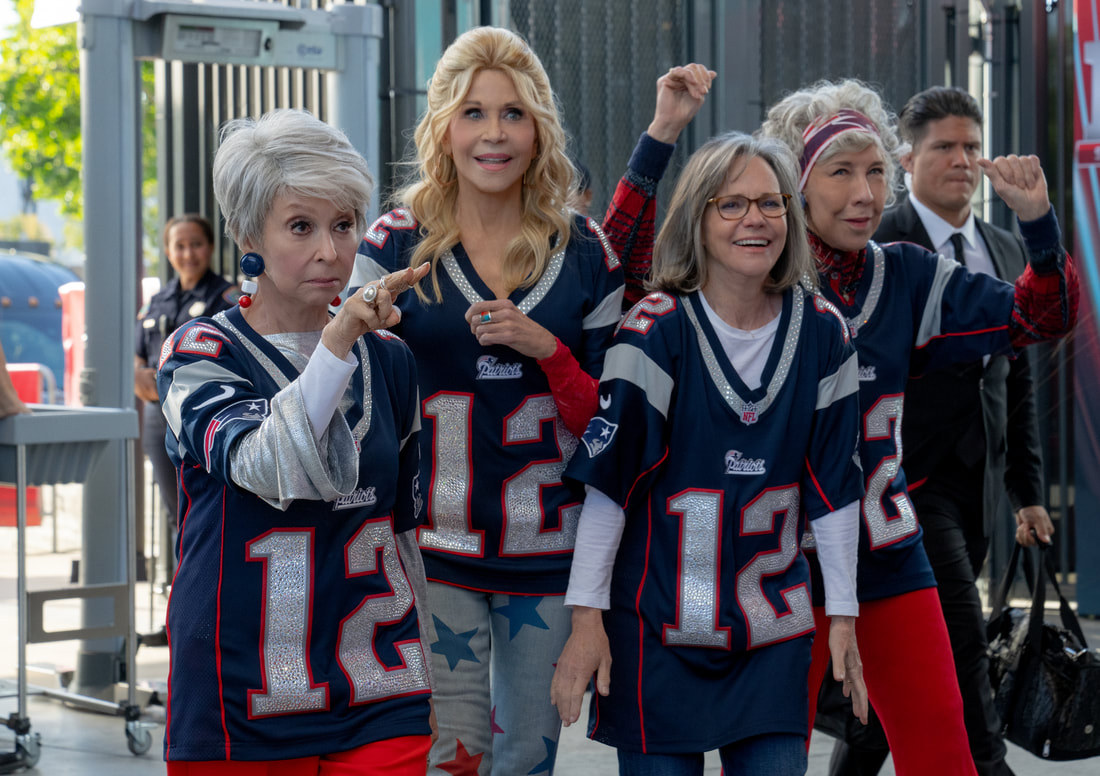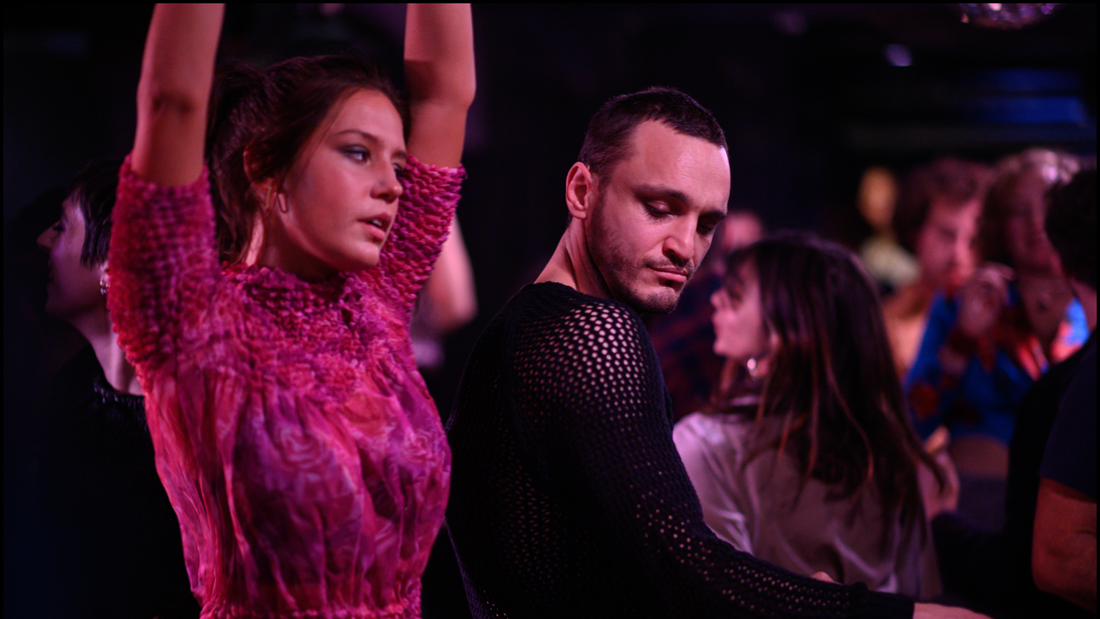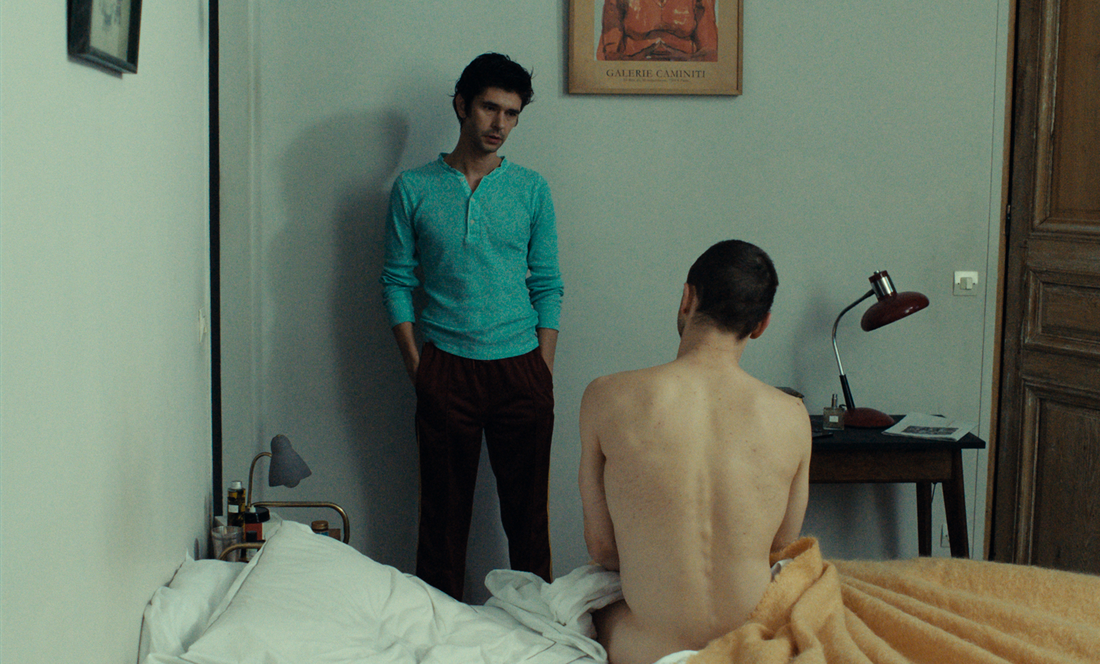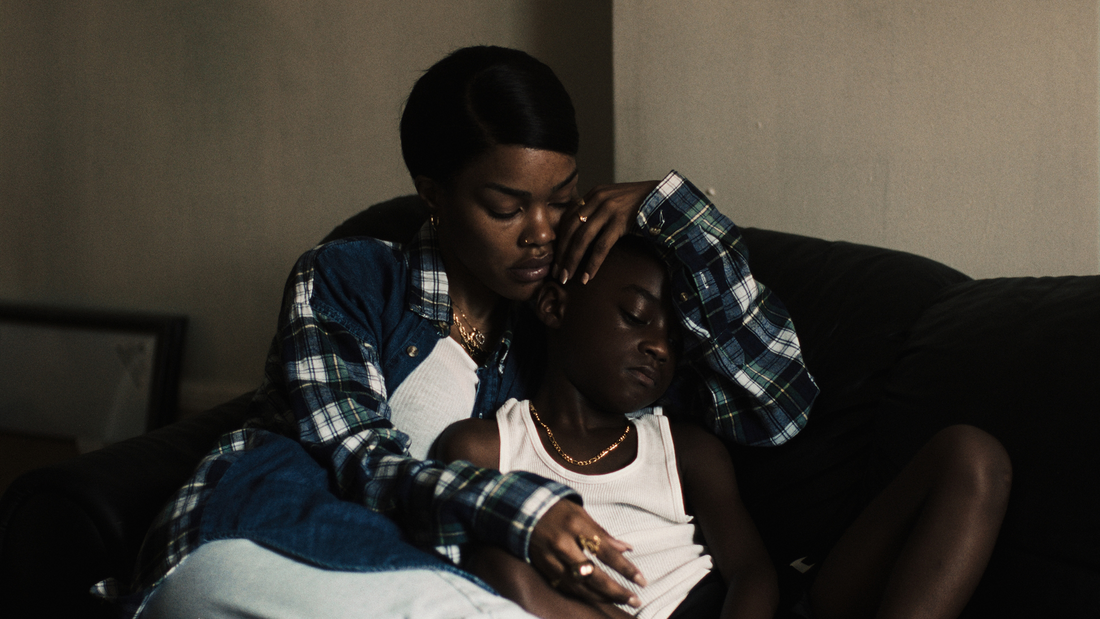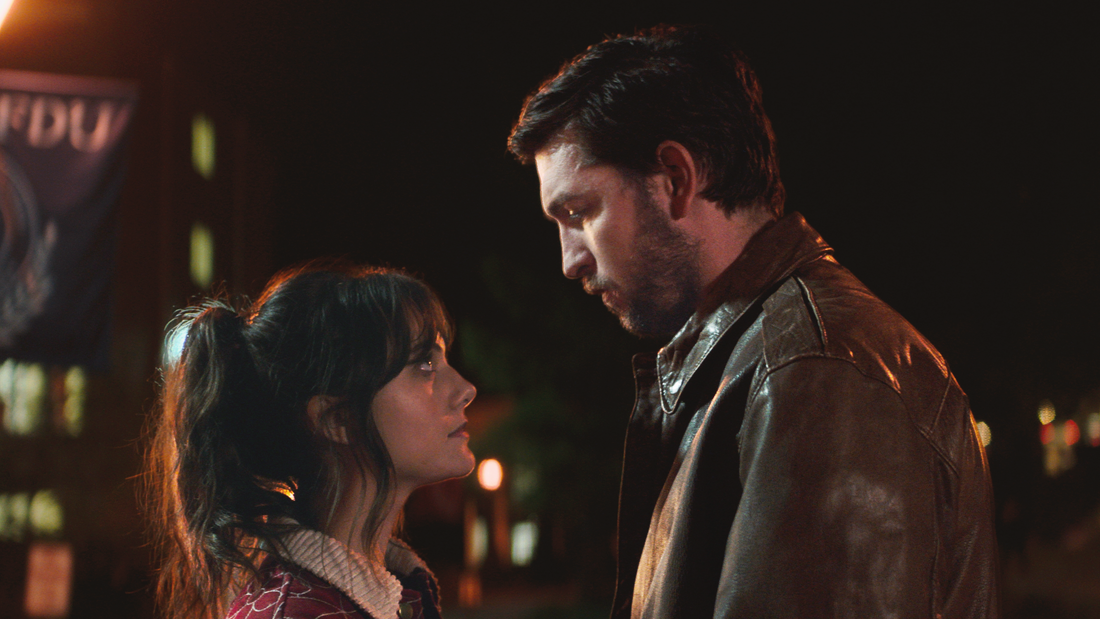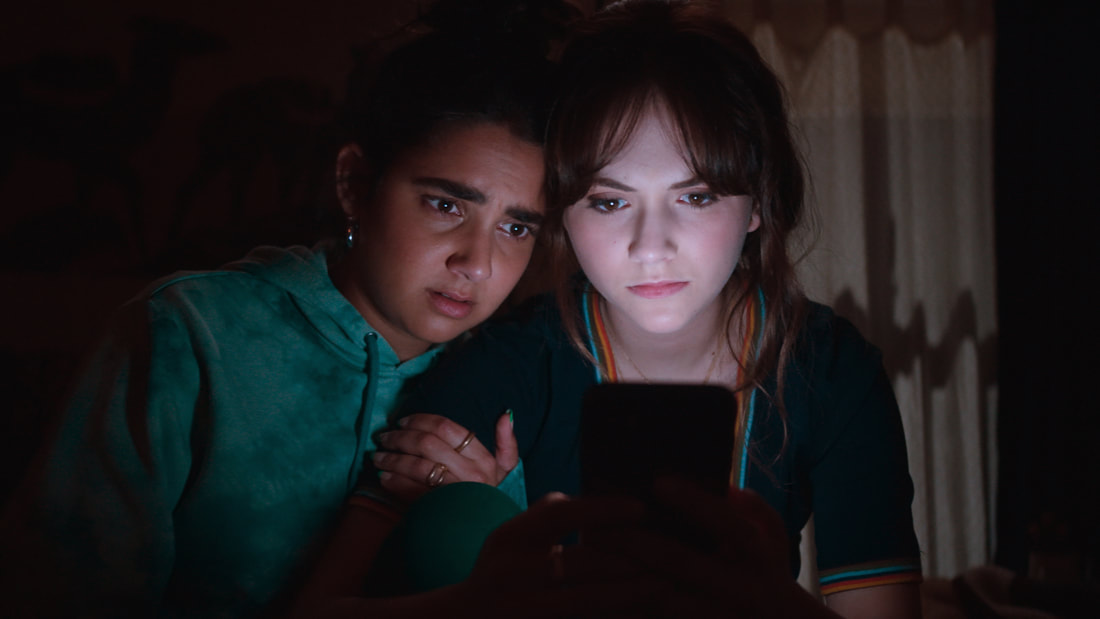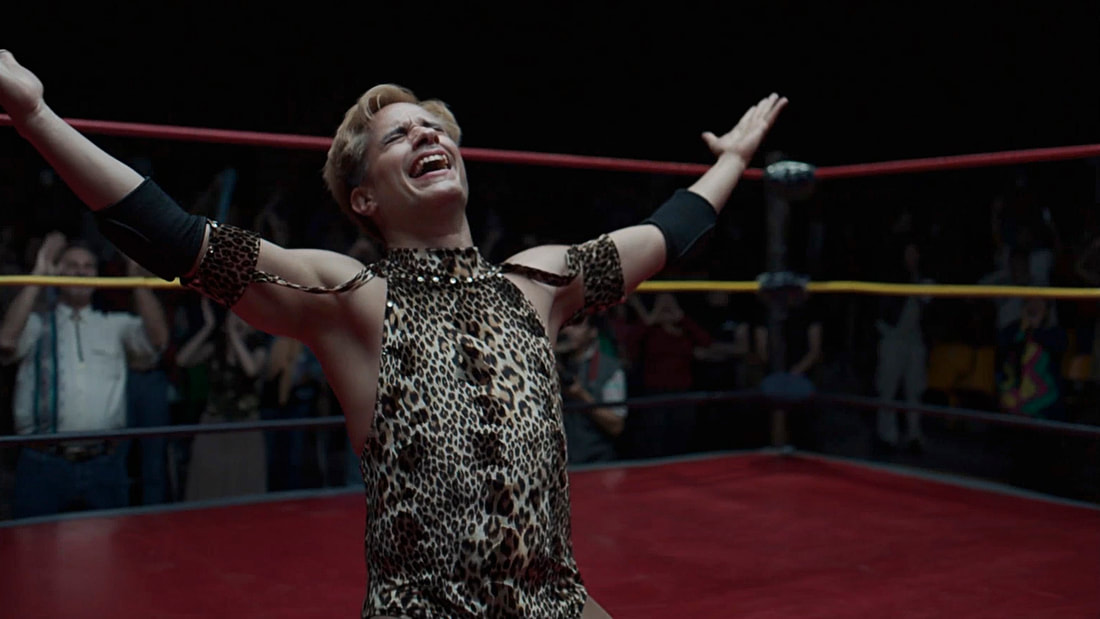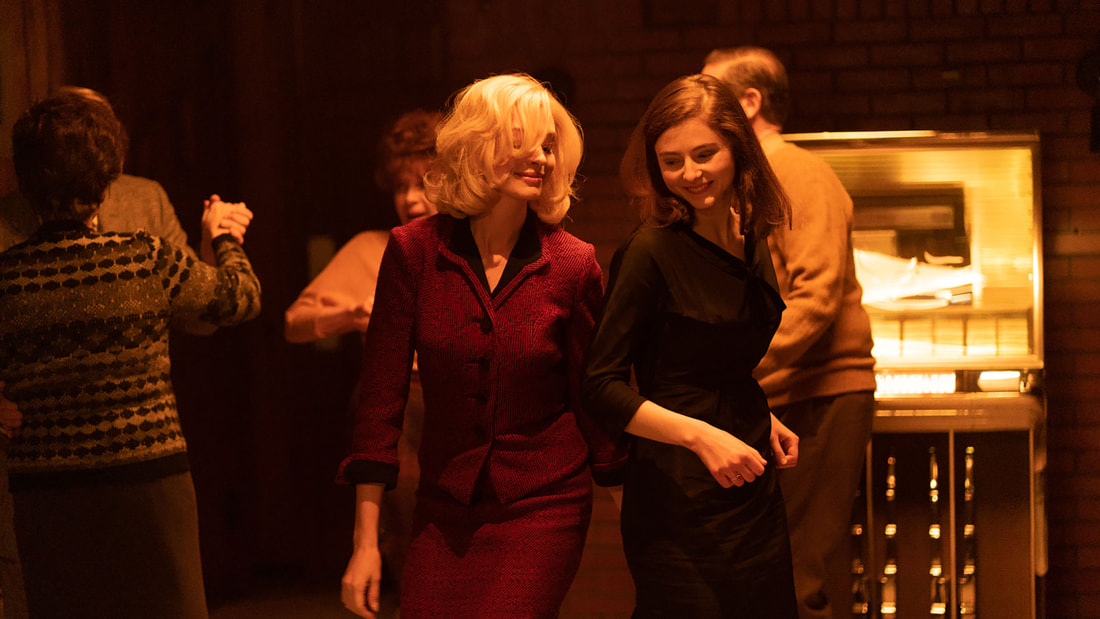|
Review by Dan Skip Allen It's no secret that I am a huge New England Patriots fan and, as such, a huge Tom Brady fan. So when I heard about a film starring four legends on the screen that went to the Super Bowl because they were huge fans of Tom Brady, I was already in on this film. Even with that anticipation, I didn't expect to love 80 for Brady as much as I did. It's a sweet, loveable ode to the power of never giving up and putting your faith in someone you admire. Lou (Lily Tomlin) is a woman who watches her favorite player Tom Brady play football each week with her three best friends, Trish (Jane Fonda), Betty (Sally Field), and Muara (Rita Moreno). This has been their tradition since Lou was on chemotherapy and Tom Brady replaced Drew Bledsoe in a game sixteen years prior. Watching football was what motivated her to recover from her cancer. After the Patriots beat the Pittsburgh Steelers in the AFC Championship in 2017, they decide to go to the Super Bowl to see their hero up close and personal. This becomes the adventure of a lifetime for the four women in their golden years. This film has a few contrivances that get the women into the actual game, but it doesn't matter how they get into the Super Bowl. All that matters is what happens when they get in and how it reflects on their hero, Tom Brady, who plays himself throughout the film. Super Bowl LI is considered the biggest comeback in Super Bowl history. This story was embellished a little for the big screen, but I didn't care. I was on board from the beginning. There were so many references I was laughing at, and I couldn't help but be completely enthralled by this movie. Each of the four women has their own arc in the film. They all have their reasons for wanting to be there at that game to support Tom Brady and the Patriots. One of them wants to get away from her husband, another is hiding a secret about why they are there in the first place, one develops a relationship with an older man who used to be a player in his own right (played by Harry Hamlin), and the fourth wants to prove she's not over the hill yet and has a lot of life to live still. This film has some great messages for anybody, let alone senior citizens. The thing about this movie that really resonates with me is where I was at this time in my life. I was at my friend's house during Super Bowl LI, and I was not in a good mood when my team, the Patriots, was losing 28-3 in the third quarter of the game. I, of course, never lost hope for my boy Tommy but it was a dismal circumstance he and the Pats found themselves in. The film uses archival footage of the game to depict the incredible comeback. The editing around the four women and their continued adventure once they got in the stadium and how that revolved around the game itself was pretty cool. They weaved that together very nicely. With all the football talk and Tom Brady love, I almost forgot the performances of these four legendary actresses. These ladies are all Academy Awards-nominated actresses, and three of the four won Oscars in their careers. They could have easily phoned in their performances, but they didn't. I felt genuinely connected to their various subplots and the central theme the film was trying to convey: not giving up. All their subplots gave them room to be their characters and space to have fun in their roles while also playing a bigger part in the overall story the movie was trying to tell. There is a reason these four ladies are so legendary, and this film shows that in full effect.
One of the best aspects of the movie is how, even though it has some serious subject matter, it doesn't take itself too seriously. There are plenty of humorous moments in the movie you just can't help but laugh at, such as the tradition the women have before every kickoff. One lady is reading a magazine in the dining room, another is changing a lightbulb on a ladder, one spills a bowl of chips, and the fourth is just sitting on the couch changing channels and lands on the game in question. Last but not least is the song sung by Dolly Parton, Belinda Carlisle, Gloria Estefan, and Cindy Lauper. It's the credits song, written by 14-time Academy Award nominee Diane Warren. She got four other legends of the music world to see the song and the song is so catchy I found myself listening to it nonstop. This will finally win Diane Warren an Academy Award. Mark it down — you heard it here first. 80 for Brady is an inspiring story about never giving up no matter how old or sick or in many cares people struggling in various ways. The performances from the four legendary actresses — Tomlin, Fonda, Moreno, and Field — are exceptional. Even though it's a tongue-in-cheek type of performance, they take the roles and themes the movie is trying to convey seriously. The humor is a bonus, and the fish-out-of-water nature of these four older women entering this whole new world is mostly hilarious. Sure, some contrivances are required for the story to unfold, but that's nothing out of the ordinary. The film is filled with cameos of celebrities and character actors in various roles, but the actual New England Patriots playing themselves was like the icing on top of the cake. Even Brady got me emotional at various times in the movie. He is, after all, a very inspiring human being and a true leader. This film should resonate with many people, whether you're a Patriots fan, a football fan, or just a fan of a good funny movie. 80 for Brady hits theaters on February 3. Rating: 4/5
0 Comments
Review by Sean Boelman
Ira Sachs is one of the most acclaimed American independent filmmakers working today, so it’s only fitting that his newest film, Passages, would be one of the highlights of this year’s Sundance. A simple yet passionate romance, Passages thrives off of Sach’s strong direction and excellent performances from its ensemble.
The movie tells the story of a longtime gay couple whose relationship is put to the test when one of them has an affair with a woman. It’s a premise that sounds like it could be found in a soap opera, but in the adroit hands of Sachs, it manages to be something quaint yet utterly riveting at the same time. What makes Passages so refreshing is the unorthodox approach it takes to the love triangle. Eschewing histrionics and big reveals in favor of a more quiet, humanistic approach to telling these stories. The events that would normally be presented as dramatic developments instead become events that simply happen in life. The only real shortcoming of the film is that it doesn’t have as naturalistic of a flow as it seems to demand. The narrative has large gaps in time, and while it’s heavily implied that this is because those periods in the tumultuous love triangle weren’t particularly eventful, it also deprives certain scenes of a particular context.
Sachs’s character development in the movie is intriguing because it successfully positions itself in a plane of ambiguity. The characters behave in ways that are frustratingly selfish, yet Sachs lingers on the human emotions that motivate their actions in a way that is compelling, albeit purposefully not always empathetic.
The film is largely driven by the power of its three central performances. Franz Rogowski takes the lead here with a performance full of subdued emotion; however, his accent — particularly when speaking English — can be a tad distracting. Ben Whishaw’s performance is more reactive, but has plenty of moments that are captivating. Adèle Exarchopoulos doesn’t have as strong of a presence in the movie, but is great when she is on screen. Sachs is also tremendously successful with how he shoots the film. One of the most impressive aspects of the movie is its use of intimacy and sexuality. Some of the sex scenes are shot in a way that are passionate and erotic, and others are rough and lustful. That Sachs is able to pull off such a delicate dichotomy is thoroughly impressive. If it was made by anyone else, Passages would have been just another steamy love triangle, but Ira Sachs has managed to turn it into one of the most humanistic romances of the year. Audiences will be absolutely enamored by the quiet sensibilities of Sachs’s wonderful film. Passages played at the 2023 Sundance Film Festival, which ran January 19-29 in-person in Park City, UT and January 24-29 online. Rating: 4/5
Review by Sean Boelman
With A Thousand and One, filmmaker A.V. Rockwell has created what might be one of the most passionate, emotional feature debuts in recent memory. Thanks to an accomplished visual style and great acting, Rockwell is able to overcome some of the pacing issues in the script to make a captivating mother-son drama.
The film follows a mother who decides to kidnap her son from the foster care system, believing that it is not the right place for him, only to create a tension that bubbles up when he becomes a teenager. Recent years have seen many movies about the relationship between a single parent and their child, but few have been as uncommonly empathetic as Rockwell’s debut. The middle section of the film does drag a bit, but the first and final thirds are so compelling that it is able to recover. Although the beats are somewhat predictable — including a finale presented as a twist that isn’t particularly twisty — Rockwell never loses track of the emotional through-line that makes the movie tick. Teyana Taylor’s performance as a devoted mother is an absolute powerhouse, and it’s pretty shocking considering that she hasn’t had many acting roles that have challenged her range. However, she absolutely disappears into the role, giving a layered performance that feels like it comes from someone with decades of experience, not a relative novice. Additionally, the film is gorgeously shot, with beautiful cinematography by Eric Yue, great production design from Sharon Lomofsky, and a lovely score by Gary Gunn. These elements work together seamlessly to immerse the viewers in this world, particularly during the portion set in Harlem in the ‘90s. That being said, the movie does feel like a missed opportunity to tackle its potentially weighty context. There is plenty of subtext in the film involving poverty and the inefficiencies of the foster care system. On one hand, this allows Rockwell to focus more on the intimate, human stakes, but introducing these elements just to leave them underdeveloped is frustrating. There is also something left to be desired in terms of the characters’ motivations. Although the core themes of motherhood and belonging are likely to resonate with viewers, the characters needed a bit more specificity to work. Nevertheless, the dynamic between the mother and son is very sincere and largely free of melodrama. A Thousand and One doesn’t reinvent the wheel, but it’s very compelling. A.V. Rockwell’s tender direction and Teyana Tayor’s brilliant performance elevate this beyond the occasionally sluggish script. A Thousand and One is playing at the 2023 Sundance Film Festival, which runs January 19-29 in-person in Park City, UT and January 24-29 online. Rating: 3.5/5
Review by Sean Boelman
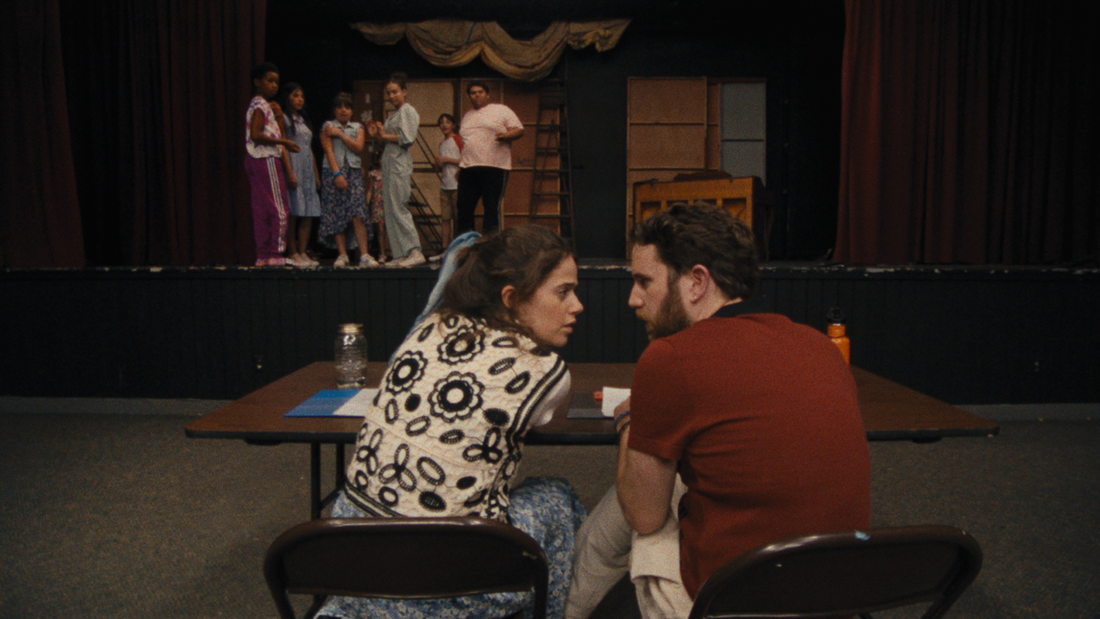
Molly Gordon, Ben Platt, Alexander Bello, Kyndra Sanchez, Bailee Bonick, Quinn Titcomb, Madisen Marie Lora, Donovan Colan and Luke Islam appear in a still from Theater Camp by Molly Goron and Nick Lieberman, an official selection of the U.S. Dramatic Competition at the 2023 Sundance Film Festival. Courtesy of Sundance Institute.
A film about theater nerds starring Ben Platt (Dear Evan Hansen) sounds like a recipe for disaster, but in the hands of Molly Gordon (Booksmart) and her filmmaking partner Nick Lieberman, it turns into one of the most entertaining movies of this year’s Sundance. A blast from start to finish — especially for those who were theater kids growing up — Theater Camp may be conventional, but it’s exactly what it sets out to be.
The film follows the campers and staff of a rundown theater camp as they struggle to keep the lights on when their beloved founder ends up in a coma right before the term begins. An expansion of Gordon and Lieberman’s short of the same name, Theater Camp is a love letter to the communities of outcasts that are theater kids. This is a very wholesome movie, and there are some laughs that will have viewers absolutely rolling. It’s never mean-spirited, but the film has some jokes that are pointing fingers at some of the common pratfalls of theater kid culture in a way that will perfectly tap into viewers’ nostalgia without feeling overly sentimental. The movie follows a very standard mockumentary style a la Christopher Guest, but there’s a dynamic, energetic, and playful quality to it that could serve to reinvigorate the genre. The film isn’t overly self-aware like something like The Office, instead being focused on telling a great story first and foremost. Shockingly, the movie contains some original songs that are pretty wonderful. It’s hilarious that this film’s original songs, meant to parody a summer camp original musical, are better than some of the songs that got nominated for the Oscar this year. The comedy song “Women Cannot Read” is especially a banger. One noticeable area in which the movie does come up short is its character development. The campers are rather archetypal, and for a film that is literally about inspiring future generations of people to pursue the arts, it’s frustrating that you’d be hard-pressed to remember even one of the kids’ names. Even the counselors, while given more fleshed out personalities, are rather generic. That being said, the movie’s ensemble is so extraordinary that the film feels tremendously lived in despite the weak character development. All of the young actors that play the campers are extremely talented and have fabulous voices. And perhaps most surprising is that Gordon and Lieberman are able to get strong, unexpectedly nuanced performances out of typically one-note actors like Ben Platt and Jimmy Tatro. Theater Camp is significantly better than it has any right to be. It’s not a particularly weighty or challenging movie, but in terms of pure entertainment value, there are very few comedies that have nailed this quite so well in recent memory. Theater Camp is playing at the 2023 Sundance Film Festival, which runs January 19-29 in-person in Park City, UT and January 24-29 online. Rating: 4.5/5
Review by Sean Boelman
Bridgerton breakout star Phoebe Dynevor is finally getting her chance to lead a movie in the thriller Fair Play, starring opposite Solo’s Alden Ehrenreich. While Dynevor is clearly the best part of the film, that isn’t saying much, because this is simply a dull relationship background that aims higher than it is able to achieve.
The movie follows a young couple who, working at the same cutthroat hedge-fund with a secret, unapproved relationship, find their lives unraveling when one of them receives a promotion at the expense of the other. This could have been a steamy, edge-of-your-seat thriller, but the film instead ends up being just another jealousy drama. Indeed, the worst thing about Fair Play is that it simply isn’t particularly interesting. Movies set in an aspect of society that the general public doesn’t fully understand, such as the stock market, have an immediate obstacle to overcome. However, Domont doesn’t find a way to make the viewer understand the stakes, and as such, it’s not thrilling whatsoever. That said, perhaps the film’s biggest shortcoming is that it doesn’t engage with its themes in particularly interesting ways. Many critics have hailed the movie as a dissection of gender politics, but the film’s gender politics are frustratingly overt. Apart from a few discussions in which the protagonists argue over how she had to work hard to get where she’s at and he got his success handed to him, it hardly even mentions them. Unlikeable characters and a compelling story are not mutually exclusive, but in this case, the audience’s frustrations with the characters’ actions will be enough to leave them feeling disillusioned. It’s clear that Domont is hoping to build a feeling of shifting allegiances, but we know the whole time that there is a villain and who it is, so the moral ambiguity completely fails. Alden Ehrenreich and Phoebe Dynevor pull off the exact dynamic that the script calls for, but it’s not particularly satisfying. Often, a couple without any chemistry or sexual tension would be a distraction, but here, it’s the right amount of off-putting to be unsettling. Eddie Marsan’s supporting performance is also noteworthy, as he has a couple of scenes that will have you holding your breath. The movie is very polished from a technical level, but it is missing the sleek kineticism of other boardroom-set satires like Industry and Succession. The score by Brian McOmber is solid, but that alone is not enough to compensate for the lack of tension that the film fails to build through its writing and editing. Fair Play shows a lot of potential on the part of first-time writer-director Chloe Domont, but it’s not as riveting as she clearly thinks it is. How this ended up being the highest-dollar acquisition of this year’s Sundance will continue to be baffling. Fair Play is playing at the 2023 Sundance Film Festival, which runs January 19-29 in-person in Park City, UT and January 24-29 online. Rating: 2/5
Review by Sean Boelman
Randall Park has had his hand in some of the funniest projects in film in television in the past decade, so his directorial debut, Shortcomings, was quite an exciting prospect. While Park proves that he’s a pretty fantastic comedy director here, the script struggles to balance its edginess with satisfying storytelling.
The movie follows a young theater manager who is forced to confront the implications of race in modern dating when his longtime girlfriend decides to move across the country and wants them to “take a break.” Written by Adrian Tomine from his popular graphic novel, the film purports to be the antithesis to the saccharine, crowd-pleasing forms of representation we have seen in mainstream movies in recent years. There is an episodic structure to the film lent to it by the source material. It’s nice that Tomine was able to adapt his own work, and therefore ensure that his artistic vision was preserved, but it’s also frustrating because you can literally feel the gaps in the movie that are the start of a new segment. The film poses some interesting questions about Asian-American identity, but it ends up feeling overstuffed. Again, this is likely a quality that was lost in the translation from page to screen. While these individual themes might have worked well through the panels in a graphic novel, they lack the cohesiveness and flow that is necessary to make a romantic comedy work. It’s also somewhat surprising that the movie does not have a more pronounced visual style given that it is adapted from a graphic novel. Of course, Tomine’s visual style emphasizes realism, but the film leaves something to be desired by being shot much like the types of studio rom-coms that it directly ridicules. Still, Park does one hell of a job directing his actors, getting performances out of them that fit the bill perfectly. The thing about Shortcomings that is likely to divide its viewers most is that its characters are rather unlikable. It’s certainly intriguing to watch a romantic comedy where you can’t really root for either of the characters because they’re both very selfish. Obviously, the characters’ arcs are realizing their selfishness and (hopefully) growing out of it, but it does begin to feel frustrating at times. That being said, there is one character that is infectiously charming: the protagonist’s best friend played hilariously by Sherry Cola. Cola’s comedic timing is absolutely impeccable and consistently gets the biggest laughs in the movie, and she also has the perfect personality to be a wonderful foil to Justin H. Min’s curmudgeonly “hero.” Shortcomings is often funny, but it is held back from becoming a new rom-com classic due to a script that is too incohesive to be fully immersive. It’s a work of passion for all involved — and it shows — but there’s no denying that it falls short of its full potential. Shortcomings is playing at the 2023 Sundance Film Festival, which runs January 19-29 in-person in Park City, UT and January 24-29 online. Rating: 3.5/5
Review by Sean Boelman
Lots of people have tried and failed to make films capturing the terrifying dating scene that Gen Z faces, but few have managed to capture these anxieties properly. Cat Person is a rare exception, a romantic thriller inspired by a true story that takes the audience along for a wild ride that is equal parts hilarious and distressing.
Based on a short story by Kristen Roupenian that appeared in The New Yorker, the movie follows a college student who begins a relationship with an older man, only for things to take a sinister turn when she decides to break things off. It’s a film that really strives to make the viewer feel uncomfortable and awkward, and it does so without a hitch. The movie is not subtle whatsoever on its commentary on the fragility of the male ego and how dangerous it has become. And while the film fails to really interrogate the issue or the elements of our patriarchal society that allowed the male ego to reach such a dangerous point, it does a good job of pointing out something to which many people are still unfortunately oblivious. Part of what makes the movie so interesting is its character development. Michelle Ashford’s screenplay does an excellent job of making the audience feel charmed by Robert and Margot at first, only for them to both reveal their true colors as the story unfolds. We definitely know where the story is heading, but the writing is strong enough to make us question whether our perception is right.
The two central performances are both pretty fantastic. Nicholas Braun shines with a performance that requires a great deal of range, particularly in the third act when the dichotomy turns into something with much less pronounced lines. Emilia Jones is also extremely charming here, apart from a few scenes in which she goes a bit too big.
Susanna Fogel directs the film very sleekly, with colorful yet claustrophobic cinematography and a soundtrack that features some really fun needle drops. A few of the movie’s more ambitious elements, like the breaking of the fourth wall, are a bit overused, but they are shot quite effectively nonetheless. The shit really hits the fan in the last thirty minutes, but even for the first two acts, it keeps viewers engaged. Even if the suspense is built in ways that could be considered unearned — like the creation of threats that aren’t really there — it will constantly keep viewers on the edge of their seats and laughing uncomfortably. Cat Person has gotten a very divisive reception out of Sundance, but for the target audience of younger viewers, it’s likely to be an entertainingly awkward watch. It’s not perfect by any means, but it’s genuinely entertaining despite its many flaws. Cat Person is playing at the 2023 Sundance Film Festival, which runs January 19-29 in-person in Park City, UT and January 24-29 online. Rating: 4/5
Review by Sean Boelman
Anthony Chen is an acclaimed Singaporean director, and for his English language debut, he helms an adaptation of Alexander Maksik’s novel, A Marker to Measure Drift. Led by performances and direction that are wonderfully subtle, Drift will go down as one of the best movies of the festival even if it isn’t one of the flashiest.
The film follows a refugee who, having left her life of privilege in her war-torn home country after a horrible tragedy, begins a friendship with an American tour guide on a Greek island. It’s an extraordinarily humanistic version of this story, lacking the melodrama that often drives films about this theme. Chen’s direction utilizes the gorgeous scenery of the Greek islands in a fascinating way. Although Crystel Fournier’s cinematography is stunning, it is used to create a facade that allows the movie’s darker themes to create a stark juxtaposition against the idyllic landscape on which they are explored. Cynthia Erivo’s performance in the leading role is absolutely breathtaking, and somewhat against type for her. Up to this point, Erivo has made her career giving performances that are big and showy — not surprising given that she started on the stage — but the lack of dialogue in much of the film requires her to use her mannerisms and facial expressions to communicate emotion rather than her voice. Also playing against type is Alia Shawkat, who gives an unexpectedly tender performance opposite Erivo. Although this is firmly Erivo’s movie, Shawkat seems to recognize that, radiating a warmth in her role that allows Erivo to do her best possible work. It’s a refreshingly unfussy supporting turn in a festival that is full of scene-stealers. The film works best when it explores the unorthodox friendship that forms between the two characters. The flashbacks to the protagonist’s past, detailing her experience as a refugee, aren’t as well-developed, culminating in a third act that, while harrowing, is a bit more expositional than it needs to be. Indeed, the best parts of the movie are those which are more subdued and less overt. Much of the first hour, we follow Erivo’s character as she struggles as a refugee in a strange land, haunted by her trauma, and what makes it stand out from other immigrant stories is its restrained approach. The finale is certainly emotional, but it trades the poeticism and subtext for distressing brutality. Although the final act may not feel entirely earned, extraordinary performances by Cynthia Erivo and Alia Shawkat and beautiful direction from Anthony Chen allow Drift to resonate deeply. Its quietly contemplative nature may be too slow for some but will linger in one’s mind long after the credits roll. Drift is playing at the 2023 Sundance Film Festival, which runs January 19-29 in-person in Park City, UT and January 24-29 online. Rating: 4.5/5
Review by Sean Boelman
Filmmaker Roger Ross Williams won an Academy Award for his documentary work, so his narrative debut, the biopic Cassandro, was highly anticipated in this year’s Sundance lineup. Although the film has some moments that feel overly conventional, Williams’s keen eye as a director makes it memorable nonetheless.
The movie tells the story of amateur luchador Saúl Armendáriz, who rises through the ranks of the Mexican lucha libre circuit and to international stardom after forming an “exotico” personality by the name of Cassandro. Sports biopics are a dime a dozen, but lucha libre is the type of niche sport underrepresented within the genre, allowing it to be somewhat distinctive even in its familiarity. The biggest success of the film, without a doubt, is its visual style. Costume designer María Estela Fernández does an extraordinary job capturing the colorful and flamboyant world of lucha libre. Just as impressive is how Williams shoots the lucha scenes themselves, with a visual kineticism that lends the movie a great deal of energy. It’s nice to see a biopic that so openly addresses the identity of an LGBTQIA+ icon. Although the film otherwise sticks to the standard, traditional beats of the biopic genre, it engages so deeply with the subject’s identity and his role in the LGBTQIA+ community, allowing it to stand out. Gael Garcia Bernal’s performance in the leading role is nothing short of exquisite. Bernal plays the role in a way that never feels like a caricature. It’s a balance that is undeniably challenging to pull off, given that Cassandro’s persona is all about his flamboyance, but Bernal manages to capture that while still keeping in touch with the core humanity of the role. That being said, the movie does struggle with going beyond the external challenges faced by the character. We see a lot of how others in the lucha libre community attempt to hold Cassandro back, and it’s inspiring to see him overcome the odds to achieve success and fame, but it would have been worthwhile to see how this affected him on a more personal level. Perhaps most disappointing, though, is how it largely wastes its supporting cast. Raúl Castillo has the most prominent supporting role, playing another luchador who enters into a relationship with Bernal’s Cassandro. Unfortunately, he is absent for significant stretches of the film, yet Castillo has too strong of a presence to feel insignificant. Reggaeton superstar Bad Bunny also has a bit part, but seems there for the name recognition more than anything else. Cassandro benefits from strong direction and an amazing lead performance, elevating it beyond its occasionally standard approach to the genre. Hopefully people remember this biopic well into the year, as it is sure to compare favorably to plenty of other biopics focusing on more mainstream figures. Cassandro is playing at the 2023 Sundance Film Festival, which runs January 19-29 in-person in Park City, UT and January 24-29 online. Rating: 3.5/5
Review by Sean Boelman
William Oldroyd’s romantic drama/thriller Lady Macbeth was wickedly fun, and was a large part of what kicked off the career of fan-favorite actress Florence Pugh. Those hoping for the same type of sinister thrills from Oldroyd’s newest film, Eileen, will be sorely disappointed, as it’s a largely dull crime drama with weak narrative momentum.
Based on the novel of the same name by Ottessa Moshfegh, the movie follows a woman working at a prison facility who forms an unusual friendship with a new coworker. Many people went in expecting this to be some sort of erotic thriller, and it’s very much not that, with Oldroyd’s charged direction bordering on queerbaiting. For the most part, the pacing is absolutely glacial. It’s a film full of unrequited tension that ultimately doesn’t build into much of anything. In a way, it almost feels as if the movie is spinning its wheels to reach an ending that promises to be totally unhinged — but it simply isn’t enough to make the film feel compelling. Eventually, the movie takes a drastic shift heading into the third act that comes out of left field. Perhaps this development worked better in novel form, where there was more time to build up to the conclusion, but it simply doesn’t feel like that was where the film was heading. On its own, the third act is quite compelling, but it feels rather underdeveloped in context. The movie is perhaps most successful on a technical level, thanks to an aesthetic style that is wonderfully atmospheric. Cinematographer Ari Wegner is without a doubt the MVP of the film, creating a grainy look that replicates the crime genre perfectly; however, the work of costume designer Olga Mill and production designer Craig Lathrop should also not be ignored. The main reason that many people will be seeing this movie is for the performance by Anne Hathaway, and she delivers a performance that — while kitschy and over-the-top — is completely engrossing. Especially in the third act, which embraces the more pulpy aspirations of the story, Hathaway is the only aspect of this film that keeps it energetic. On the opposite end of the spectrum, Thomasin McKenzie’s performance is less consistent. It’s clear that she is meant to be a subdued foil to Hathaway’s extravagance, but instead, her performance simply feels rather cold. On top of this, the Boston accent that she attempts is thoroughly unconvincing, drawing the viewer out of the story. Eileen is a solidly-crafted movie and features yet another show-stopping performance from Anne Hathaway, but the script meanders and leaves something to be desired. It’s disappointing to see a film that has all of the pieces in place end up feeling so unmoving. Eileen is playing at the 2023 Sundance Film Festival, which runs January 19-29 in-person in Park City, UT and January 24-29 online. Rating: 3/5 |
Archives
July 2024
Authors
All
|
|
|
disappointment media
Dedicated to unique and diverse perspectives on cinema! |


